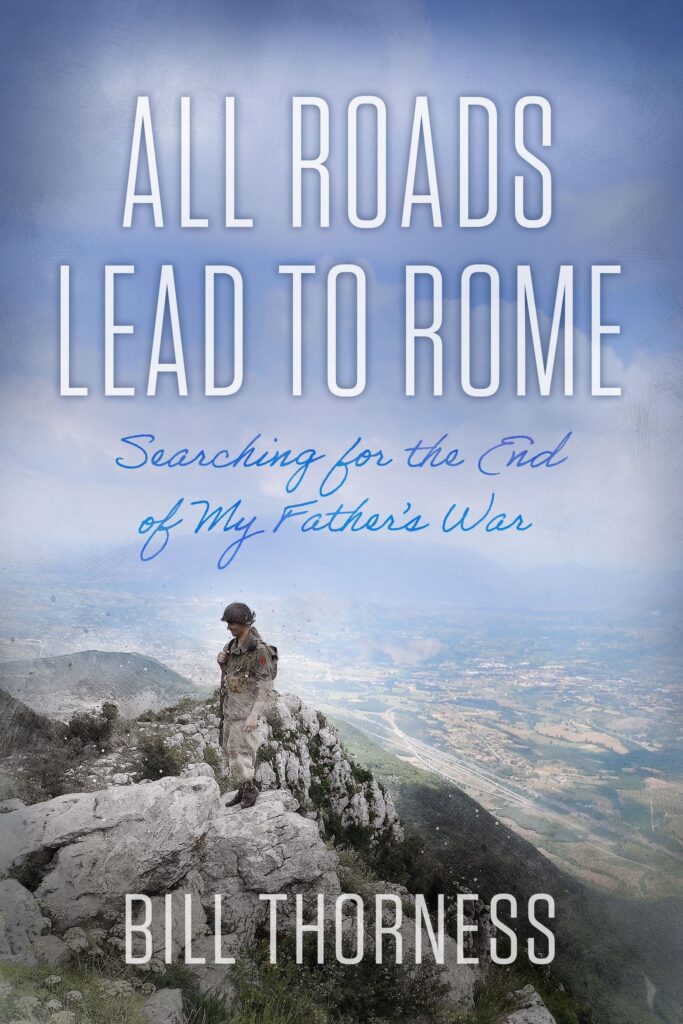Coming this fall:

All Roads Lead to Rome: Searching for the End of My Father’s War
An exploration of family, history, memory and the ravages of war. To be available December 1 from Potomac Books, University of Nebraska Press
Preorder through Bookshop.org — support indie bookstores.
Related Links:
“We Have Always Owed Our Soldiers More,” Op-ed, May 26, 2024, St. Paul Pioneer-Press
My Substack column: billthorness.substack.com